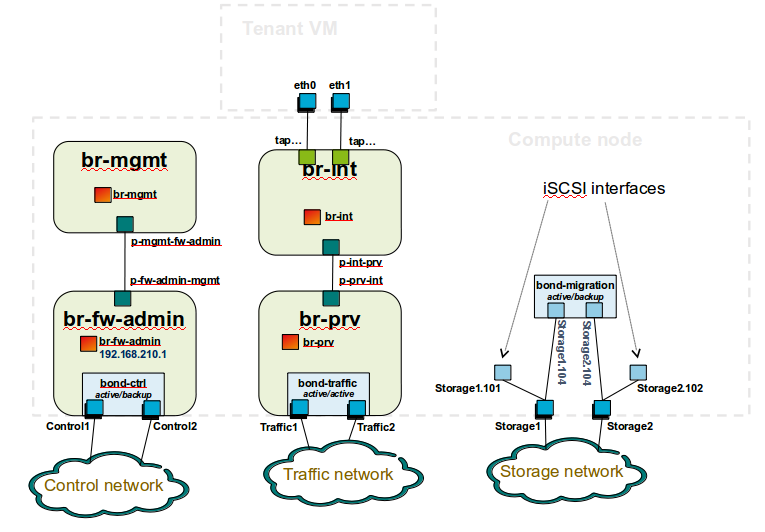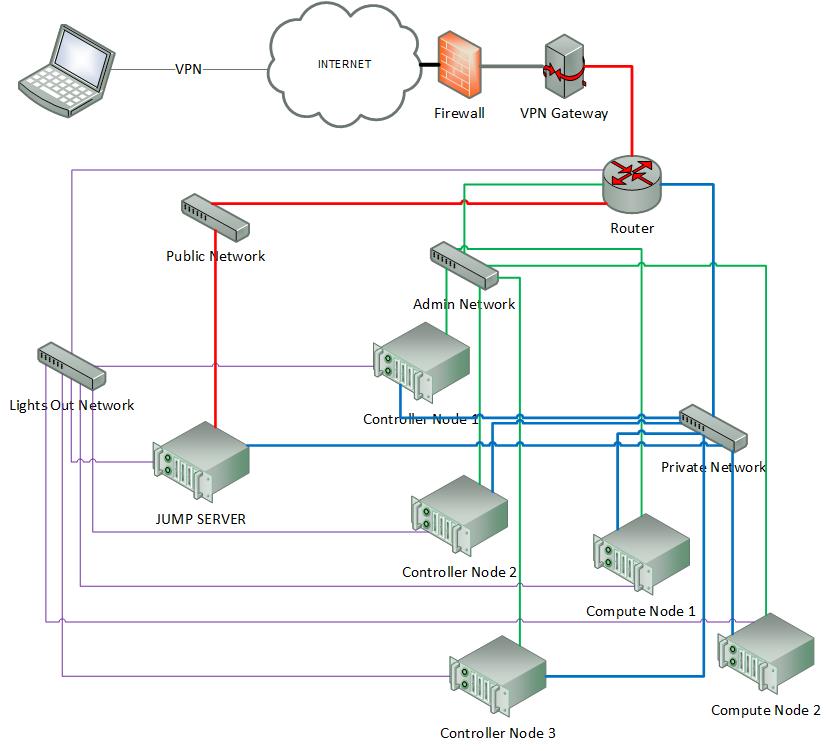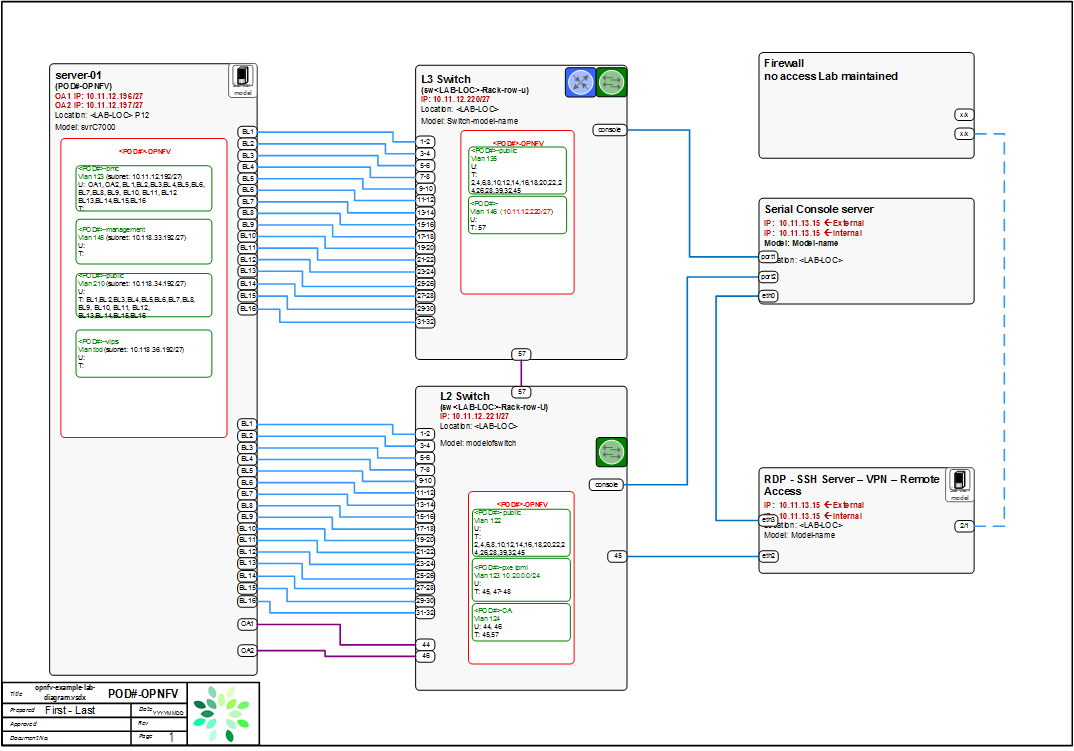Networking¶
Network Hardware
- 24 or 48 Port TOR Switch
- NICs - Combination of 1GE and 10GE based on network topology options (per server can be on-board or use PCI-e)
- Connectivity for each data/control network is through a separate NIC. This simplifies Switch Management however requires more NICs on the server and also more switch ports
- BMC (Baseboard Management Controller) for lights-out mangement network using IPMI (Intelligent Platform Management Interface)
Network Options
- Option I: 4x1G Control, 2x10G Data, 48 Port Switch
- 1 x 1G for lights-out Management
- 1 x 1G for Admin/PXE boot
- 1 x 1G for control-plane connectivity
- 1 x 1G for storage
- 2 x 10G for data network (redundancy, NIC bonding, High bandwidth testing)
- Option II: 1x1G Control, 2x 10G Data, 24 Port Switch
- Connectivity to networks is through VLANs on the Control NIC
- Data NIC used for VNF traffic and storage traffic segmented through VLANs
- Option III: 2x1G Control, 2x10G Data, 2x10G Storage, 24 Port Switch
- Data NIC used for VNF traffic
- Storage NIC used for control plane and Storage segmented through VLANs (separate host traffic from VNF)
- 1 x 1G for lights-out mangement
- 1 x 1G for Admin/PXE boot
- 2 x 10G for control-plane connectivity/storage
- 2 x 10G for data network
Documented configuration to include:
- Subnet, VLANs (may be constrained by existing lab setups or rules)
- IPs
- Types of NW - lights-out, public, private, admin, storage
- May be special NW requirements for performance related projects
- Default gateways
Sample Network Drawings



Download the visio zip file here: opnfv-example-lab-diagram.vsdx.zip
